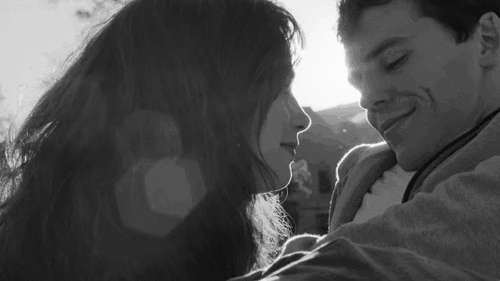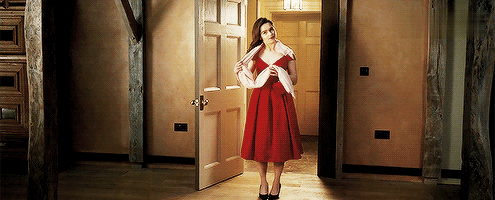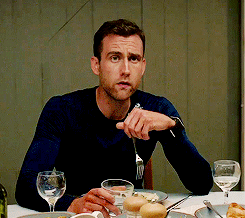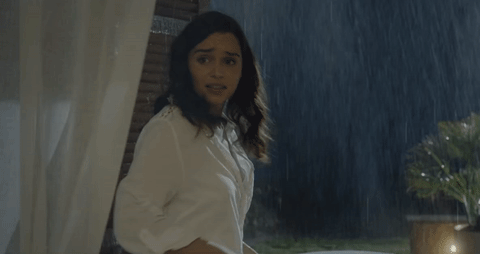
Thea Sharrock’s film adaptation of the thought-provoking and heart wrenching novel Me Before You, written by Jojo Moyes, had me giggling, crying and gritting my teeth all in one sitting. Lou Clark is a bubbly, chatty and good-natured 26-year-old living in a small English town with her family whom she helps to support financially; Lou’s father is out of job and her sister is a single mother. After Lou loses her job at the Buttered Bun Bakery, she desperately seeks any kind of work and ends up looking after and entertaining the sour-faced quadriplegic Will Traynor, whose family are very wealthy and essentially own a castle (as you do.) It’s not quite what Lou has in mind or what she expects – Will is sarcastic, rude and dismissive and despite Lou’s efforts to make friendly conversation and entertain Will, lots of awkwardness and tension ensues. However, over time Lou manages to coax Will out of his shell and a very close friendship blossoms. But then Lou discovers a secret – Will is planning to travel to Switzerland and end his life there in six months’ time; needless to say, this is something that causes a lot of tension and upset between Will’s parents. Suddenly it becomes imperative that Lou makes Will’s remaining time on earth as enjoyable as possible so that he will eventually change his mind. Lou puts herself deeper and deeper into the situation which triggers the downfall of her relationship with her boyfriend Patrick, and essentially puts her in an increasingly vulnerable position. Lou confesses her feelings for Will whilst they are on holiday and it becomes clear that although Will's feelings are mutual, nothing was ever going to change his mind about committing suicide. In brief, Will sticks to his guns and ends his life peacefully with those he loves by his side but the movie doesn’t end on a negative note; the final scene shows Lou in Paris, following the instructions given by Will in his last letter to her as he was adamant that she leave her small-town life and really embrace the opportunities that the world has to give, something that Will himself was never able to do.

Firstly, I haven’t actually read the book so I’m basing everything upon the film as well as reviews and comments made by other people that I have read online. I thought the cast was definitely one of the strong points of the film – I love Emilia Clarke already and she was so great in this film. Her personality was infectious and in a lot of ways she is actually quite similar to myself (apart from her fashion sense and being a small-town girl!) I was able to relate to her quite a lot but the other characters were also played extremely well. Sam Claflin, although an able-bodied actor, represented Will’s character quite well I think, and the two main characters’ relationship didn’t feel forced at all. I would say that generally I quite liked all of the characters including Lou’s parents, Will’s parents and Patrick, played by Matthew Lewis. I found that this type of movie focused more on the difficult situations presented to the characters and how that affected their choices and opinions, rather than a series of major events.


The film had lovely scenery and great camerawork; it was a masterpiece on screen. For some reason I’m so much more enthusiastic about British films than American films (maybe that’s because I’m British and can relate more? Who knows.) Basically, there were a lot of charming and very satisfying moments but I do want to turn to some of the aspects that had me thinking on a deeper level. Apparently Patrick’s presence is felt much more in the book and the relationship between him and Lou is explored more whereas in the film I honestly would never have guessed that the two had been together for 7 years. 7 years?! You would expect them to either be married, given that Lou comes from a Christian household, or that they would…I don’t know, act more like a couple that had been together for 7 years. I mean, Patrick can’t really take certain hints and you would expect him to know Lou inside out but I don’t think he does. On the flipside, one of the biggest attributes we can associate with Lou is comfort; she enjoys her life, she is easily pleased, she has what she wants and she has no particular desire to go out into the world and explore. Her relationship with Patrick probably fits neatly into the box. Being with Will allows her to question herself and actually change as a person. Initially I though Patrick was, you know, a little self-centred but the scene in which he cooks a surprise dinner for Lou actually made me feel really sorry for him. A lot of viewers couldn’t believe that she would end her 7-year-relationship for someone she had only known for a few months; to be perfectly honest, I was quite surprised but then I could see how Will and Lou both complemented each other and allowed one another to grow much more. Although Lou did encourage Patrick with his athletic pursuits, their bond just didn’t feel as genuine and there was much less chemistry to be found there. Whether that’s because of the length of time they had been together or not is maybe something to be discussed!

The other much more huge and significant aspect of the story is Will’s decision and the run-up to his decision. The film sparked a lot of controversy amongst physically disabled viewers and many people have come to the conclusion that the film’s message is that physically disabled people are better off dead than alive. I don’t think we can come to such a generalisation when the topics of euthanasia and illness are so broad. Will is just one representation of the many people out there who are living in pain but everyone has a different experience; while some may be fortunate enough to carry on living and make the most out of their life, some cannot and will not and that is ultimately their decision to make. I would hope it would be a last, last resort. In a sense, the story can be seen to show how people can have a ripple effect on other people; although Will ceases to live by the end of the film, Lou really ends up ‘living’. I’m sure there are many examples of films that have a similar ending. However, although I haven’t read the book, we have to carefully analyse the medium through which the story is told and which decisions are made. Once Will is dead, Lou is shown to be enjoying Paris merely a few weeks later. This is, you know, great for Lou, because she is a likeable character and she deserves to be happy. You can’t help falling for someone. But there is no alternate scenes of people affected negatively by Will’s death, such as his parents and that’s where I have an issue. Will is gone just like that. Although present throughout the whole film, once he’s gone he’s gone and I feel he isn’t done enough justice. This actually makes me question the title: who is the ‘me’ in Me Before You?

I would definitely recommend this film – it triggers lots of emotions and really makes you think but it is also perfect if you just want to have a soppy couple of hours. Personally, I would like to read the book and see how it compares to the film. Despite the controversy, the story definitely reiterates the fact that life is precious and it is ‘our duty’ to live it. The characters have differing opinions on Will’s desire to commit suicide. The fact that Lou stands by him, although it is horrible for her, goes to show that the idea of disabled people being unworthy is a load of bollocks. I shouldn’t even have to say this but they are just as worthy of being loved and their life is just as precious. The fact that we are able to make our own choices shows how important we all are. Thea Sharrock’s film adaptation of the thought-provoking and heart wrenching novel Me Before You, written by Jojo Moyes, had me giggling, crying and gritting my teeth all in one sitting.